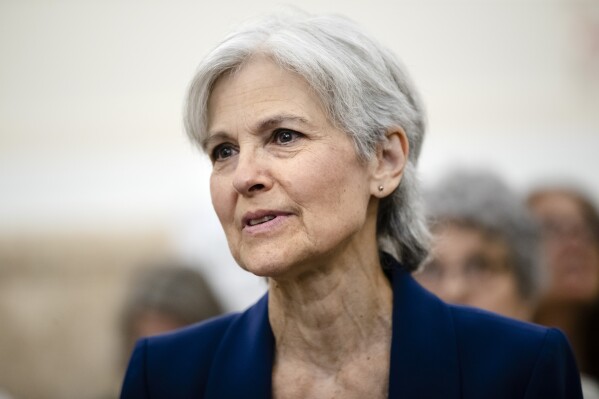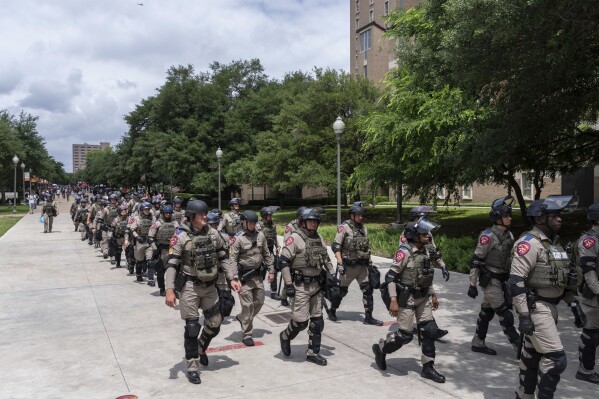No evidence COVID-19 vaccines create new virus variants
CLAIM: The variants of the coronavirus that have been found in the global population were created by COVID-19 vaccines, which made antibodies that forced the virus to evolve.
AP’S ASSESSMENT: False. COVID-19 vaccines reduce the spread of the virus, thereby reducing the likelihood that the virus will mutate to create new variants. Scientific evidence also shows a number of coronavirus variants emerged in the population before COVID-19 vaccines were available.
THE FACTS: An article quoting a virologist known for spreading conspiracy theories about the coronavirus is pushing the false claim that COVID-19 vaccines were the catalyst that caused new variants of the virus to emerge around the globe.
“Bombshell: Nobel Prize Winner Reveals - Covid Vaccine is ‘Creating Variants,’” reads the headline of the article, which has been shared more than 6,000 times on Facebook since May 18. The article goes on to claim that the vaccines forced the virus to “‘find another solution’ or die,” thus producing the known coronavirus variants.
The article attributes the claim to Luc Montagnier, who won the Nobel Prize in 2008 for discovering HIV and has spread false claims about the coronavirus. It is published on the website of the RAIR Foundation, which describes itself as a “grassroots activist organization” aiming to “combat the threats from Islamic supremacists, radical leftists and their allies.”
Experts contacted by The Associated Press explained that coronavirus variants found across the globe began emerging long before vaccines were widely available. They said the evidence suggests new variants evolved as a result of prolonged viral infections in the population, not vaccines, which are designed to prevent such infections.
“There’s no evidence that the vaccines create new variants, largely because vaccination appears to shut down viral infections, prevent people from spreading it to others,” said Dr. Stuart Ray, a professor at Johns Hopkins University’s medical school. “If the virus can’t spread, it doesn’t have the opportunity to evolve.”
With some viruses, such as dengue virus, scientists have observed a phenomenon called antibody-dependent enhancement, in which antibodies generated by a past infection or a vaccine will bind to a viral pathogen but not neutralize it. This can cause people who have antibodies to experience more severe symptoms if they are infected later.
However, this phenomenon has not been observed with the coronavirus or vaccines to prevent it.
“With lots and lots of experience with use of antibodies therapeutically, we’ve seen no evidence of enhancement,” Ray said, referring to antibody therapies used to fight the coronavirus. “We also worried about the possibility that people who were reinfected might have more severe infection, akin to the situation we’ve seen with dengue virus, and that also hasn’t been borne out. So there’s really no basis for the claim that’s being ascribed to Dr. Montagnier.”
During COVID-19 vaccine development, animal studies were designed specifically to look for signs of antibody-dependent enhancement — and did not find evidence of it.
“Though ADE was a theoretical concern at the beginning of the pandemic, we are not seeing it in the clinical trials or in the real world as vaccines roll out,” said Dr. Helen Chu, an immunologist and professor of medicine at the University of Washington.
Montagnier did not respond to a request for comment.
___
This is part of The Associated Press’ ongoing effort to fact-check misinformation that is shared widely online, including work with Facebook to identify and reduce the circulation of false stories on the platform.
Here’s more information on Facebook’s fact-checking program: https://www.facebook.com/help/1952307158131536



